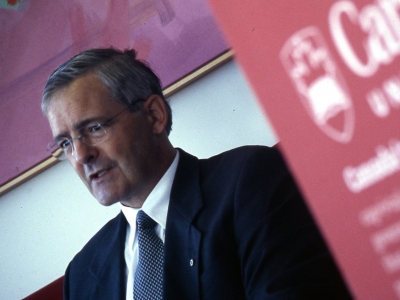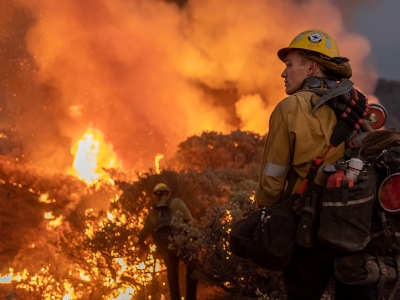Carleton University hosted the launch today of the Healthy End of Life Project (HELP) Ottawa – an innovative research initiative led by Prof. Pamela Grassau at the School of Social Work that will help local communities support people to live well, surrounded by family, friends and social networks.
“The biggest change that HELP represents is a move away from a medically driven understanding of palliative and end-of-life care,” said Grassau, who is collaborating with Compassionate Ottawa and receiving $641,000 over three years from Mach-Gaensslen Foundation.
The groundbreaking initiative is designed to support people with advanced age, frailty, chronic and/or life-limiting illness to live at home or in the community as long as possible.
“Medical services and the delivery of strong health care are crucial, but considering the current level of need — and the fact that our needs will be growing — we need models of care which create strong links between health services, community programs, neighbourhoods and the broader population,’’ said Grassau.
“HELP is about normalizing death and dying and increasing community capacity so friends, neighbours and relatives will be able to help people experience this stage of their lives with comfort and dignity.”
Although HELP follows the structure of a research project, it’s community-based research and another strong example of Carleton faculty and students being actively engaging with the community in which they live, work and study.
With Canada’s health-care system overburdened and family support networks fraying, HELP Ottawa will pilot work in four local community sites to develop, implement and evaluate programs supporting people living at home or in the community.
“When the time comes, most of us want a ‘good’ death at home with family and friends, but usually that doesn’t happen,” said James Nininger, Compassionate Ottawa co-chair and former CEO of the Conference Board of Canada. “There’s also a big economic case for helping people stay at home or at least in the community, with help and support services provided by friends, family and, when it’s required, health-care professionals.
“Medical care is essential, but it’s episodic. The HELP model that we’re piloting is not new — it goes back to what we used to do, with the community coming together to support people.”
The implementation of HELP in Ottawa, its first foothold in Canada, is modelled after a successful program developed at Melbourne’s La Trobe University, now being implemented in Australia, New Zealand and parts of Europe.
“This a unique and very necessary initiative,” said Mach-Gaensslen Foundation Chair Chris Carruthers, a member of and past chair of Carleton’s Board of Governors. He noted the foundation has been focusing on mental health over the past few years and there’s a significant mental health component to palliative care.
“There’s a huge gap that we’re hoping to address through the HELP project.’’
Ottawa’s project will involve two community health centres – the Centretown Community Health Centre and South-East Ottawa Community Health Centre – and two faith-based organizations. Within each site, a research team will work collaboratively with stakeholders to ensure programs are locally developed and designed for and by the community.
Their responses could involve caregiver training, increasing social support, designing neighbourhood-based networks or hubs, and developing and enhancing awareness. For example, empowering a neighbour to look in on the senior who lives alone next door and exploring what they might need, or helping them with routine chores such as shopping or shovelling snow.
“We’re trying to mobilize compassionate neighbours and expand a sense of connection and shared humanity,’’ said Grassau.
Media contact
Steven Reid
Media Relations Officer
Carleton University
613-520-2600, ext. 8718
613-265-6613
Steven_Reid3@Carleton.ca
Carleton Newsroom: https://newsroom.carleton.ca/
Follow us on Twitter: www.twitter.com/Cunewsroom
Need an expert? Go to: www.carleton.ca/newsroom/experts
Wednesday, February 6, 2019 in News Releases
Share: Twitter, Facebook



